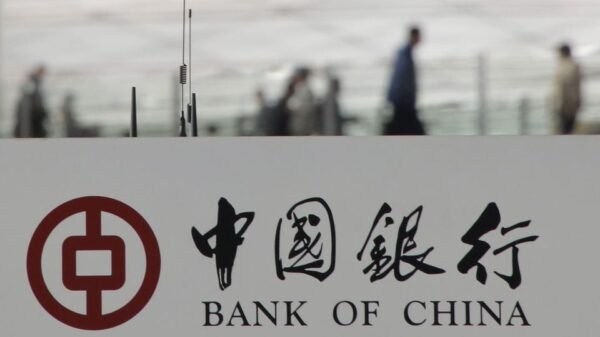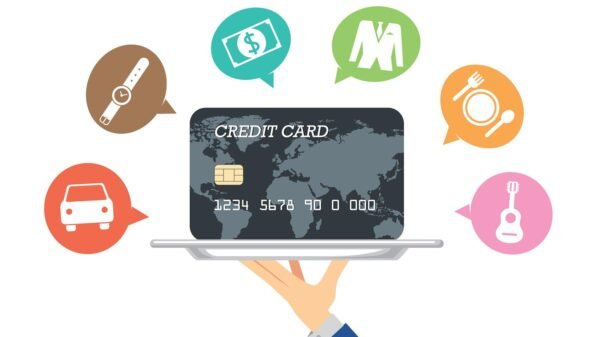Credit card debt and your business
Credit card debt is one of the biggest threats facing businesses today. Are you prepared?
Key takeaways:
- Credit card debt can impact businesses financially and operationally.
- Understand credit card debt to manage it effectively.
- Good financial practices like budgeting, debt prioritization, and monitoring credit utilization are crucial.
- Negotiate lower interest rates and seek professional help when needed.
- Stay proactive and vigilant in managing credit card debt.
- With discipline and sound strategies, businesses can overcome credit card debt and achieve financial stability.
Managing your company’s finances effectively is crucial if you want to see it succeed, and as a business owner, you probably already know this. But no matter how hard you try, credit card debt can sneak up on you and become a drag that hurts your business. The idea of handling bills and interest rates can be confusing and make you feel like you’re drowning in a sea of financial obligations. Don’t worry though, you’re not the only one. This is a problem that many business owners have to deal with.
In this piece, we’ll talk about how credit card debt can affect your business. We’ll look at the different things that can cause debt to build up and the risks it can pose. We will also talk about how important it is for a business to have good financial management and how planning can help with credit card debt. By the end of this article, you’ll have a better idea of how to deal with credit card debt and make sure your business makes money.
So, let’s talk about what credit card debt means for your business and how you can get your finances under control.
Understanding Credit Card Debt
Credit card debt is a common problem that many businesses face, and it can be a daunting issue to deal with. To fully comprehend how to manage credit card debt in your business, it’s important to understand what credit card debt is, the different types of credit card debt, and the factors that lead to debt accumulation.
Credit card debt is simply the amount of money that you owe on your credit card. It’s the balance that accumulates as you use your credit card for purchases. While credit cards can be useful for business owners, they can also be a double-edged sword when not managed properly.
There are two main types of credit card debt that businesses can accumulate: revolving debt and balance transfer debt. Revolving debt is the type of credit card debt that accrues interest on any unpaid balance each month. On the other hand, balance transfer debt is the amount of money that is transferred from one credit card to another, usually with a lower interest rate.
So, what factors contribute to credit card debt accumulation? One of the primary culprits is overspending. When businesses spend more than they can afford, they end up accumulating debt on their credit cards. Additionally, unexpected expenses or emergencies can also lead to credit card debt, especially if businesses don’t have a reserve fund.
Another factor that contributes to credit card debt accumulation is the interest rate. The higher the interest rate on a credit card, the more difficult it is to pay off the balance. Additionally, making only the minimum payment on a credit card can also contribute to debt accumulation since the interest accrues on the remaining balance.
It’s important to note that credit card debt can quickly spiral out of control if it’s not managed properly. High levels of debt can negatively impact your business’s credit score, making it harder to access financing in the future. It can also affect your cash flow and profitability, ultimately hindering the growth and success of your business.
In summary, understanding credit card debt and its various types and contributing factors is crucial for managing debt in your business. By recognizing the warning signs of credit card debt accumulation and implementing effective financial management strategies, you can keep your business financially healthy and thriving.
Financial Management in Business
Financial management is an essential aspect of running a successful business, and it encompasses a range of practices that help businesses make informed financial decisions. The importance of financial management cannot be overstated, as it is critical for ensuring that a business has the necessary resources to operate efficiently and achieve its goals.
Effective financial management involves several key elements. One of the most important elements is budgeting. Budgeting is the process of planning and allocating financial resources to achieve specific goals. It involves creating a financial plan that takes into account a business’s income, expenses, and potential financial risks.
Another important aspect of financial management is cash flow management. This involves managing the flow of cash into and out of the business to ensure that there is enough cash on hand to cover expenses and make investments. Cash flow management also helps businesses identify potential cash flow issues before they become major problems.
In addition to budgeting and cash flow management, financial management also involves risk management. This involves identifying potential financial risks and developing strategies to mitigate them. Financial risks can come from a range of sources, including changes in the market, economic downturns, and unforeseen events.
Effective financial management offers several benefits to businesses. One of the most significant benefits is improved financial stability. By implementing sound financial management practices, businesses can reduce their exposure to financial risks and ensure that they have the necessary resources to weather any economic storms.
Another benefit of financial management is improved decision-making. By having a better understanding of their finances, businesses can make more informed decisions about investments, expenditures, and other financial matters.
Finally, effective financial management can also improve a business’s reputation. By maintaining financial stability and transparency, businesses can establish trust with their customers, employees, and stakeholders.
Financial management is a critical component of running a successful business. By implementing effective financial management practices, businesses can achieve financial stability, make informed decisions, and establish a solid reputation. By incorporating budgeting, cash flow management, and risk management into their financial management practices, businesses can position themselves for long-term success.
The Impact of Credit Card Debt on Your Business
Credit card debt is a major concern for businesses of all sizes. While credit cards can provide much-needed flexibility and convenience, they can also lead to significant financial problems when not managed properly. The impact of credit card debt on a business can be far-reaching and long-lasting, affecting everything from cash flow to credit scores.
One of the most immediate impacts of credit card debt on a business is cash flow. When a business is carrying a significant amount of credit card debt, it can be challenging to keep up with monthly payments. This can lead to cash flow problems, making it difficult to pay bills and cover essential expenses. In extreme cases, businesses may be forced to cut back on staff or even close their doors due to cash flow issues.
Credit card debt can also affect a business’s credit score. When a business carries a high balance on their credit cards or makes late payments, it can negatively impact their credit score. This can make it more challenging to secure financing in the future or negotiate favorable terms with vendors and suppliers.
Additionally, credit card debt can impact a business’s profitability. When a business is carrying a significant amount of credit card debt, they are also carrying a significant amount of interest charges. This can eat into profits and make it more challenging to reinvest in the business or expand operations.

Photo: Avery Evans
Another impact of credit card debt on a business is increased stress and anxiety for owners and employees. When a business is struggling with debt, it can create a sense of uncertainty and anxiety for everyone involved. This can lead to decreased productivity and morale, affecting the overall success of the business.
Credit card debt can have a significant impact on a business, affecting everything from cash flow to credit scores. While credit cards can provide a range of benefits, it’s essential to manage credit card debt effectively and avoid accumulating high balances. By implementing effective financial management strategies, businesses can reduce the impact of credit card debt and position themselves for long-term success.
Budgeting and Credit Card Debt
One of the most effective ways to manage credit card debt is through budgeting. Budgeting involves creating a financial plan that takes into account a business’s income, expenses, and potential financial risks. By incorporating credit card debt into a budgeting plan, businesses can identify areas where they can reduce expenses and pay down debt more effectively.
One of the first steps in creating a budgeting plan is to assess the current financial situation. This involves looking at the business’s income and expenses, including any credit card debt. By understanding the current financial picture, businesses can identify areas where they can cut costs and redirect funds towards paying down debt.
One strategy for reducing credit card debt is to focus on paying off the highest interest rate balances first. This can help minimize the amount of interest paid over time, reducing the overall cost of the debt. Another strategy is to negotiate lower interest rates or balance transfer options with credit card companies.
In addition to paying down debt, budgeting can also help businesses avoid accumulating more credit card debt in the future. By creating a realistic budget that includes all expenses and factors in potential financial risks, businesses can better plan for unexpected expenses and reduce the need to rely on credit cards.
Effective budgeting can also lead to increased financial stability and improved credit scores. By paying down debt and avoiding late payments, businesses can improve their credit utilization ratios and establish a solid credit history. This can make it easier to secure financing in the future and negotiate favorable terms with vendors and suppliers.
Budgeting is an essential component of managing credit card debt. By incorporating credit card debt into a budgeting plan, businesses can identify areas where they can reduce expenses and pay down debt more effectively. By focusing on paying down high-interest balances and avoiding accumulating more debt, businesses can position themselves for long-term financial stability and success.
Tips for Managing Credit Card Debt in Business
Credit card debt can be a significant burden on businesses, but there are several strategies that can help manage and minimize this debt. In this section, we will explore some practical tips for managing credit card debt in business.
Tip 1: Prioritize Debt Repayment
One of the most effective ways to manage credit card debt is to prioritize repayment. This involves identifying the highest interest rate balances and focusing on paying those off first. By reducing high-interest balances, businesses can minimize the overall cost of the debt and free up cash flow for other expenses.
Tip 2: Negotiate Lower Interest Rates
Credit card companies often offer promotional interest rates to attract new customers or retain existing ones. Businesses can take advantage of these offers by negotiating lower interest rates or transferring balances to cards with lower rates. This can help reduce the overall cost of the debt and make it easier to pay down balances over time.
Tip 3: Create a Budget and Stick to It
Creating a budget is an essential component of managing credit card debt. By identifying all expenses and revenue streams, businesses can better plan for unexpected expenses and allocate funds towards debt repayment. It’s essential to stick to the budget to avoid accumulating more debt.
Tip 4: Minimize Credit Utilization
Credit utilization is the amount of credit used compared to the total credit limit. High credit utilization ratios can negatively impact credit scores and make it harder to secure financing in the future. By minimizing credit utilization, businesses can improve their credit scores and establish a solid credit history.
Tip 5: Monitor Expenses
Monitoring expenses is crucial for managing credit card debt. Businesses should regularly review their expenses and identify areas where they can cut costs. This can include reducing unnecessary expenses or negotiating lower rates with vendors and suppliers.
Tip 6: Seek Professional Help
If credit card debt becomes unmanageable, businesses can seek professional help from credit counseling agencies or debt management companies. These organizations can provide guidance and support to help businesses manage and repay their debt effectively.
Managing credit card debt in business requires a proactive and strategic approach. By prioritizing debt repayment, negotiating lower interest rates, creating a budget and sticking to it, minimizing credit utilization, monitoring expenses, and seeking professional help if needed, businesses can effectively manage and minimize their credit card debt. With these strategies in place, businesses can position themselves for long-term financial stability and success.
Credit card debt can have a significant impact on businesses, both financially and operationally. While it can be challenging to manage, there are several strategies that businesses can employ to minimize and effectively manage credit card debt.
By understanding the nature of credit card debt, implementing sound financial management practices, creating and sticking to a budget, and seeking professional help when needed, businesses can successfully navigate the challenges posed by credit card debt.
At the end of the day, the key to managing credit card debt is to remain vigilant and proactive. With discipline and determination, businesses can position themselves for long-term success and financial stability. So, take the time to evaluate your current situation and implement the strategies that work best for you and your business. With a little perseverance and a lot of hard work, you can overcome the challenges of credit card debt and emerge stronger and more financially secure than ever before.
































































Comment Template